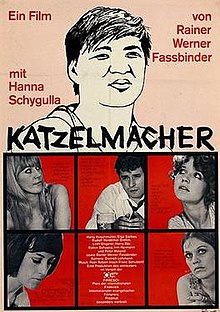
Rainer Werner Fassbinder, sometimes credited as R. W. Fassbinder, was a German filmmaker, actor, and dramatist. He is widely regarded as one of the major figures and catalysts of the New German Cinema movement. Versatile and prolific, his over 40 films span a variety of genres, most frequently blending elements of Hollywood melodrama with social criticism and avant-garde techniques. His films, according to him, explored "the exploitability of feelings". His work was deeply rooted in post-war German culture: the aftermath of Nazism, the German economic miracle, and the terror of the Red Army Faction. He worked with a company of actors and technicians who frequently appeared in his projects.

Querelle is a 1982 West German-French English-language arthouse film directed by Rainer Werner Fassbinder and starring Brad Davis, adapted from French author Jean Genet's 1947 novel Querelle of Brest. It was Fassbinder's last film, released shortly after his death at the age of 37.
New German Cinema is a period in German cinema which lasted from 1962 to 1982, in which a new generation of directors emerged who, working with low budgets, and influenced by the French New Wave and Italian Neorealism, gained notice by producing a number of "small" motion pictures that caught the attention of art house audiences. These filmmakers included Percy Adlon, Harun Farocki, Rainer Werner Fassbinder, Peter Fleischmann, Werner Herzog, Alexander Kluge, Ulli Lommel, Wolfgang Petersen, Volker Schlöndorff, Helma Sanders-Brahms, Werner Schroeter, Hans-Jürgen Syberberg, Margarethe von Trotta and Wim Wenders. As a result of the attention they garnered, they were able to create better-financed productions which were backed by the big US studios. However, most of these larger films were commercial failures and the movement was heavily dependent on subsidies. By 1977, 80% of a budget for a typical German film was ensured by a subsidy.
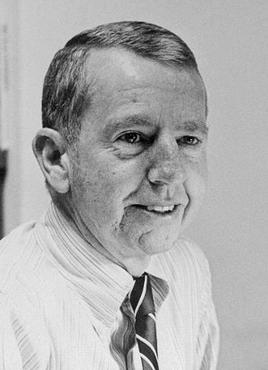
Vincent Canby was an American film and theatre critic who served as the chief film critic for The New York Times from 1969 until the early 1990s, then its chief theatre critic from 1994 until his death in 2000. He reviewed more than one thousand films during his tenure there.

Hanna Schygulla is a German actress and chanson singer associated with the theater and film director Rainer Werner Fassbinder. She first worked for Fassbinder in 1965 and became an active participant in the New German Cinema. Schygulla won the 1979 Berlin Silver Bear for Best Actress for Fassbinder's The Marriage of Maria Braun, and the 1983 Cannes Film Festival Award for Best Actress for the Marco Ferreri film The Story of Piera.
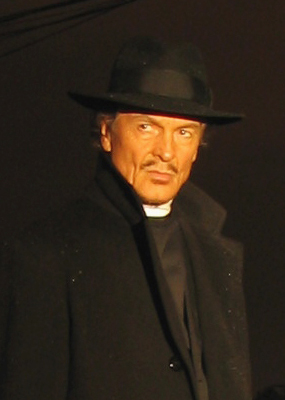
Ulli Lommel was a German actor and director, noted for his many collaborations with Rainer Werner Fassbinder and his association with the New German Cinema movement. Lommel spent time at The Factory and was a creative associate of Andy Warhol, with whom he made several films and works of art. He moved to the United States in 1977, where he wrote, directed and starred in over 50 films.

The Marriage of Maria Braun is a 1978 West German drama film directed by Rainer Werner Fassbinder. The film stars Hanna Schygulla as Maria, whose marriage to the soldier Hermann remains unfulfilled due to World War II and his post-war imprisonment. Maria adapts to the realities of post-war Germany and becomes the wealthy mistress of an industrialist, all the while staying true to her love for Hermann.

Ali: Fear Eats the Soul is a 1974 West German drama film written and directed by Rainer Werner Fassbinder, starring Brigitte Mira and El Hedi ben Salem. The film won the International Federation of Film Critics award for best in-competition movie and the Prize of the Ecumenical Jury at the 1974 Cannes Film Festival. It is considered to be one of Fassbinder's most powerful works and is hailed by many as a masterpiece.
El Hedi ben Salem was a Moroccan actor, best known for his work with film director Rainer Werner Fassbinder.
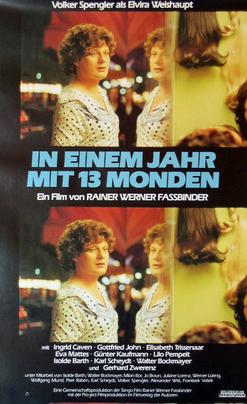
In a Year of 13 Moons is a 1978 West German drama film directed by Rainer Werner Fassbinder and starring Volker Spengler. The film was made in response to the suicide of Fassbinder's lover at the time, Armin Meier. In a "Top 10" list of his own films, Fassbinder placed In a Year of 13 Moons second, after Beware of a Holy Whore.
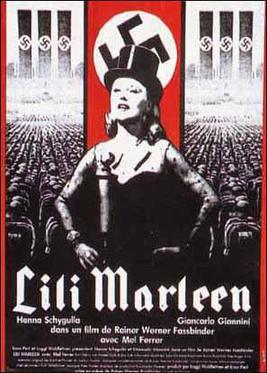
Lili Marleen is a 1981 West German drama film directed by Rainer Werner Fassbinder that stars Hanna Schygulla, Giancarlo Giannini, and Mel Ferrer. Set in the time of the Third Reich, the film recounts the love affair between a German singer who becomes the darling of the nation, based on Lale Andersen, and a Swiss conductor, based on Rolf Liebermann, who is active in saving his fellow Jews. Though the screenplay uses the autobiographical novel Der Himmel hat viele Farben by Lale Andersen, her last husband, Arthur Beul, said the film bears little relation to her real life.

Kamikaze 1989 is a 1982 West German cyberpunk thriller film co-written and directed by Wolf Gremm, based on the 1964 novel Murder on the Thirty-First Floor by Per Wahlöö. It stars Rainer Werner Fassbinder as a detective investigating a string of bombings that lead to a corporate media conspiracy. The soundtrack was composed by Tangerine Dream founder Edgar Froese.

Rosa Luxemburg is a 1986 West German drama film directed by Margarethe von Trotta. The film received the 1986 German Film Award for Best Feature Film, and Barbara Sukowa won the Cannes Film Festival's Best Actress Award and the German Film Award for Best Actress for her performance as Rosa Luxemburg.

Chinese Roulette is a 1976 West German film written and directed by Rainer Werner Fassbinder. It stars Margit Carstensen, Ulli Lommel, and Anna Karina. The film, a bleak psychological drama, climaxes with a truth-guessing game, which gives the film its title. The plot follows a bourgeois married couple whose infidelities are exposed by their disabled child.

Germany in Autumn is a 1978 West German anthology film about the period of 1977 known as the German Autumn, which was dominated by incidents of terrorism. The film is composed of contributions from different filmmakers, including Rainer Werner Fassbinder, Alexander Kluge, Edgar Reitz, Bernhard Sinkel, Alf Brustellin, Hans Peter Cloos, Katja Rupé, Peter Schubert and Volker Schlöndorff. It was entered into the 28th Berlin International Film Festival, where it won a Special Recognition award.
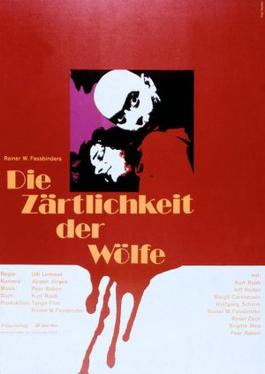
The Tenderness of Wolves is a 1973 West German crime drama film directed by Ulli Lommel. The story is based on the crimes of German serial killer and cannibal Fritz Haarmann. It was written by Kurt Raab, who also stars in the film, and produced by Rainer Werner Fassbinder. It was entered into the 23rd Berlin International Film Festival.
Dietrich Lohmann, B.V.K. was a German cinematographer.

Gods of the Plague is a 1970 West German black-and-white drama film directed by Rainer Werner Fassbinder.
Rainer Werner Fassbinder was a German filmmaker.
The Stationmaster's Wife is a 1977 German television serial directed and edited by Rainer Werner Fassbinder. It was made for German television and originally aired in 1973 as a two-part miniseries. It was based on the 1931 novel Bolwieser: The Novel of a Husband by Oskar Maria Graf.
